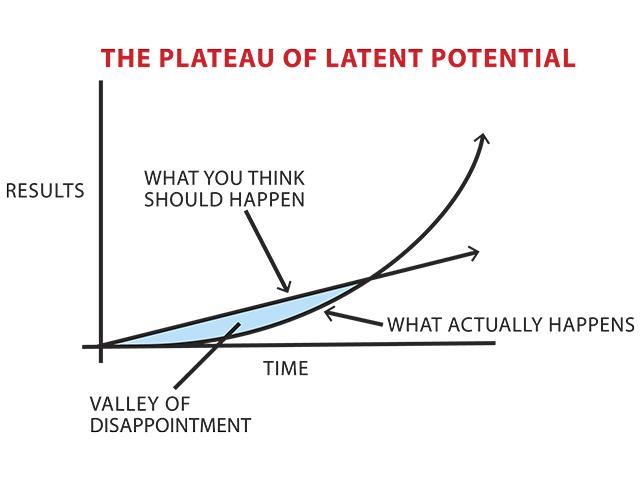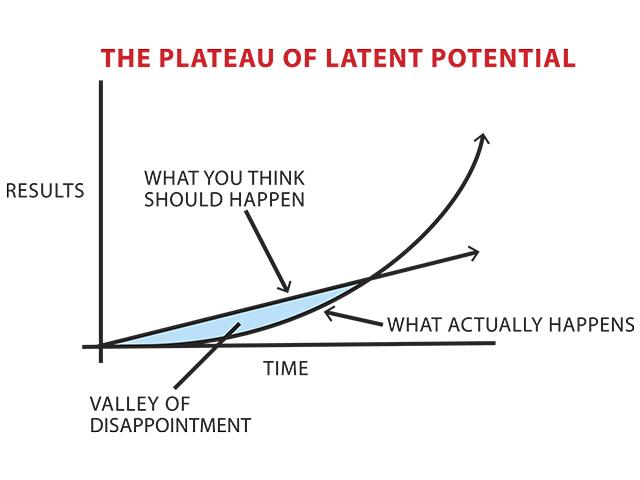Minding Ag's Business
Create Better Systems to Build a Better Business in 2024
Santa Claus is fresh in my children's minds.
It's been a week since they ripped open their stockings and marveled at the toys made by teeny elfin hands.
They're still fighting over whose turn it is to play with that Paw Patrol action figure, but at least for now, the promise that Santa is watching helps them resolve it somewhat peacefully.
But, the importance of Santa's approval will fade, and the threat of landing on the naughty list will lose its motivation. It's on to the Easter Bunny.
I like to think of New Year's resolutions in much the same light as Santa Claus.
As we turn the calendar from one year to the next, it's a natural moment to pause and reflect on ourselves, our lives and our businesses. The motivation we often feel after a good bout of self-reflection can be a powerful driver of change if we go about it the right way.
P[L1] D[0x0] M[300x250] OOP[F] ADUNIT[] T[]
Most of the time we don't. After a week or two of earnest effort, we get busy or distracted, or disheartened that our efforts aren't reaping rewards in the immediate way we had hoped. The change we sought, with the best intentions and strongest motivation, fades away.
"You do not rise to the level of your goals. You fall to the level of your systems," wrote James Clear in his book "Atomic Habits: Tiny Changes, Remarkable Results."
"Your goal is your desired outcome. Your system is the collection of daily habits that will get you there. This year, spend less time focusing on outcomes and more time focusing on the habits that precede results."
It's been more than a year since I first read Clear's book, and I often catch myself thinking about this passage, usually when I recognize that what I'm doing in that moment doesn't get me closer to achieving my goals.
Clear argued that the way to achieving goals is to focus on your systems, which are built on a multitude of tiny habits. Habits -- the things we do day in and day out with nary a thought -- can work for or against you, often like compounding interest.
He begins the book with an anecdote about Great Britain's professional cycling team. After underwhelming performance for a century, a new coach went in search of "the aggregation of marginal gains." They broke down everything it took to ride a bike and looked for all the ways to get 1% better. Just five years later, the Britons dominated the 2008 Olympic Games.
The late Danny Klinefelter, a longtime Progressive Farmer columnist and Texas A&M University professor, preached the power of small changes in what he called the "5% rule."
"A 5% increase in price received, a 5% decrease in costs and a 5% increase in yield will often produce more than a 100% increase in net returns. The effect is cumulative, multiplicative and compounding," he wrote in his last column before retirement in 2017. (https://www.dtnpf.com/…)
So, rather than make a resolution, I urge you to consider a different approach. Think about habits, whether they're yours or habits ingrained in your business operations, you can change. Then do it. Clear's book has great recommendations for how to do that if you're unsure where to start, but the most important piece is starting.
"Time magnifies the margin between success and failure," he writes. "It will multiply whatever you feed it. Good habits make time your ally. Bad habits make time your enemy."
Katie Dehlinger can be reached at katie.dehlinger@dtn.com
Follow her on X, formerly known as Twitter, at @KatieD_DTN
(c) Copyright 2024 DTN, LLC. All rights reserved.






Comments
To comment, please Log In or Join our Community .